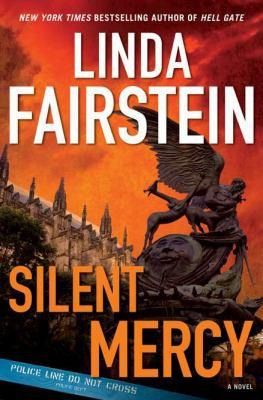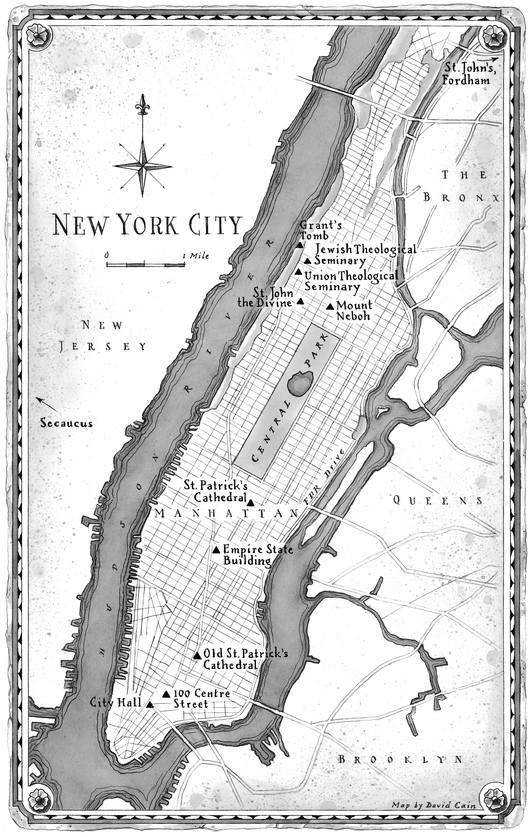"Silent Mercy" - читать интересную книгу автора (Linda Fairstein,)
 |
For CYRUS R. VANCE, Jr., District Attorney, New York County, whose wisdom, vision, integrity, courage, loyalty, and gift for friendship inspire me
 |
ONE
“IS that you with the broad, Detective?” the fire captain shouted at Mike Chapman in the darkness of a frigid March night. “Keep her back there, across the street.”
“Got that, Coop? Stay put.” Mike left me in the middle of the double-wide roadway, wedged between unmarked police cars and bright red fire trucks as he charged in behind the huddle of uniformed cops on the sidewalk on the far side of the street.
I took my own blue-and-gold badge out of my pocket — no one would stop to read that the small print beneath my name said Assistant District Attorney, not NYPD — and flapped it over the breast pocket of my ski jacket, slinking between rowdy onlookers to get within inches of Mike.
“Alexandra Cooper. Special Victims,” I said to one of the firemen. His scowl softened and he nodded to let me pass.
Chaos had enveloped the corner of 114th Street and Seventh Avenue. Flames still danced around something that lay on the portico of a stately old church, teasing the water that spouted from steady-stream nozzles the firemen aimed at it. Emergency Service Unit cops wielded axes to try to break open the locks on the wrought-iron gate that guarded the front steps, and a growing herd of neighborhood rubberneckers crowded the first responders who were trying to get the job done.
I was on the tips of my toes, hoping to catch a glimpse of what was burning. Amidst blackened fragments of some kind of fabric and the occasional glitter of embers atop that, I could make out something white — almost flesh-colored. The shape of a human arm, maybe, but that thought was too awful to imagine.
More firemen rushed past me to aid their brother officers, one of them knocking me back a step. There was no point in slowing anyone down to ask questions.
I raised myself up again. It must have been sensory overload because I thought I could see a hand, but there weren’t really any fingers, and a terrible smell made me dizzier than the confusing sight.
“Who on fire?” one tall kid yelled out at no one in particular, then started to pull on the sleeve of my jacket as I passed in front of him.
“Don’t know,” I said, breaking loose from his grip and inching forward, but his choice of pronoun focused me.
No question that within the fiery pile was a human being. The putrid odor of burning flesh — coppery and metallic — permeated the air. Holocaust survivors and soldiers who had liberated camps in World War II claimed it was a stench they would never forget.
“Go!” It was one of the ESU cops who had pushed back the gate he’d hacked open, calling out to the firemen who’d been spraying hoses impatiently from the sidewalk.
The pair took the church steps two at a time, rushing toward the smoking mound. While uniformed cops turned their attention to crowd control, Mike dashed in through the gate.
“I’m his partner,” I lied to the startled cop at the foot of the steps, running up behind Mike. I could see feet — small, pale, and bare — protruding from the remains of what might have once been a blanket that had covered them. They didn’t move.
The taller fireman dropped to his knees and did what he must have done thousands of times after dousing the flames at a scene, whether or not he believed the victim would be able to respond.
He grabbed the ankles and pulled them toward him, then threw off the charred material that had concealed the corpse. He leaned over to begin an attempt at mouth-to-mouth resuscitation, but his back bucked and broke sideways as he braced himself against one of the massive columns and retched.
I stepped forward to see what ended the fireman’s effort so abruptly, and a wave of nausea swept over me too.
The body of the young woman had no head.
(support [a t] reallib.org)